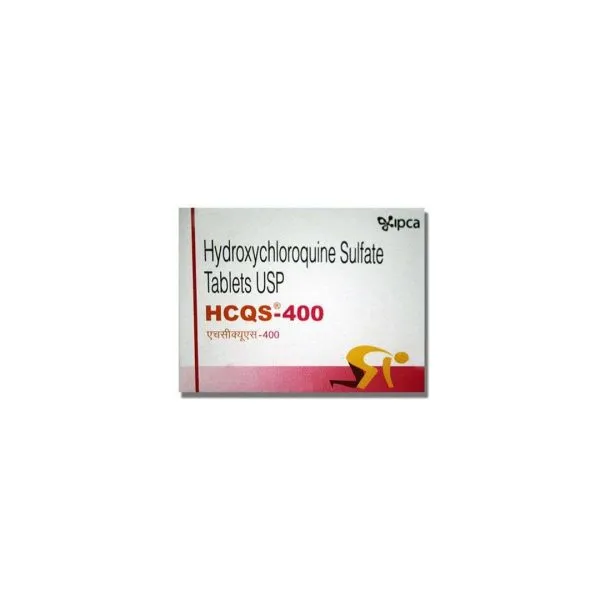Hydroxychloroquine 400 mg dose (HCQ), commonly known by its brand name Plaquenil, is a medication with diverse medical uses, primarily recognized for its effectiveness in treating autoimmune conditions such as rheumatoid arthritis (RA), systemic lupus erythematosus (SLE), and other inflammatory diseases. This blog explores the long-term use of HCQ, its mechanisms of action, medical indications, potential side effects, and considerations for patients and healthcare providers.
Mechanism of Action:
Hydroxychloroquine online belongs to the class of medications known as antimalarials, originally derived from quinine. While its precise mechanism in treating autoimmune diseases is not fully understood, HCQ is thought to modulate the immune system by:
- Inhibiting Inflammatory Responses: HCQ interferes with the activation of immune cells and the production of inflammatory cytokines, thereby reducing inflammation and tissue damage.
- Altering Cellular Processes: HCQ accumulates within cells, altering their pH and disrupting various cellular processes involved in immune responses.
Medical Indications:
- Rheumatoid Arthritis (RA): HCQ is commonly prescribed as a disease-modifying antirheumatic drug (DMARD) for managing RA, where it helps reduce joint inflammation, pain, and progression of joint damage.
- Systemic Lupus Erythematosus (SLE): HCQ is considered a cornerstone in the treatment of SLE, helping to control disease activity, prevent flares, and reduce the risk of organ damage, particularly affecting the skin, joints, kidneys, and cardiovascular system.
- Other Autoimmune Conditions: HCQ may also be used in the management of conditions such as Sjögren’s syndrome, dermatomyositis, and other connective tissue diseases where inflammation plays a significant role.
- Malaria Prophylaxis and Treatment: In addition to its autoimmune indications, HCQ is used for preventing and treating malaria caused by Plasmodium species, particularly in regions where chloroquine-resistant malaria strains are prevalent.
Long-Term Use Considerations:
- Efficacy and Disease Control: Long-term use of HCQ is crucial for maintaining disease remission and preventing disease flares in autoimmune conditions. Consistent use as prescribed by healthcare providers helps optimize treatment outcomes and improve quality of life for patients.
- Monitoring and Screening: Regular monitoring is essential for patients on long-term HCQ therapy to assess disease activity, monitor for potential side effects, and adjust treatment as needed. Monitoring may include clinical assessments, laboratory tests (e.g., complete blood count, liver function tests), and ophthalmologic examinations (discussed further below).
- Ophthalmologic Considerations: One of the most significant concerns with long-term HCQ use is the risk of ocular toxicity, specifically affecting the retina. This rare but potentially serious side effect can lead to irreversible vision loss if not detected early. Guidelines recommend baseline ophthalmologic evaluation before starting HCQ therapy, followed by annual screenings after 5 years of use to monitor for signs of retinal toxicity.
- Side Effects and Adverse Reactions: While generally well-tolerated, HCQ can cause side effects, particularly with prolonged use or at higher doses. Common side effects include gastrointestinal upset (e.g., nausea, diarrhea), skin rashes, and headache. Rare but serious side effects may include cardiomyopathy, myopathy, and blood disorders. Patients should promptly report any new or worsening symptoms to their healthcare provider.
- Drug Interactions: HCQ can interact with other medications, including certain antibiotics, antacids, and medications that affect heart rhythm (e.g., amiodarone). Healthcare providers should be informed of all medications and supplements a patient is taking to avoid potential interactions.
Patient Education and Management:
- Adherence to Therapy: Patients should adhere to their prescribed HCQ regimen to maximize therapeutic benefits and minimize the risk of disease flares. This includes taking the medication regularly and as directed by their healthcare provider.
- Sun Protection: HCQ can increase sensitivity to sunlight, leading to sunburn or skin rash. Patients should use sunscreen, wear protective clothing, and avoid excessive sun exposure, especially during peak hours.
- Lifestyle Considerations: Adopting a healthy lifestyle with regular exercise, balanced nutrition, and stress management techniques can complement HCQ therapy in managing autoimmune conditions and promoting overall well-being.
- Pregnancy and Breastfeeding: HCQ is generally considered safe to use during pregnancy and breastfeeding, as it is often prescribed to pregnant women with autoimmune diseases to manage their condition. However, healthcare providers should closely monitor patients and adjust treatment as necessary.
Future Directions and Research:
Ongoing research continues to explore HCQ’s mechanisms of action, optimize treatment protocols, and investigate potential new therapeutic uses. Clinical trials are examining its role in COVID-19 and other viral infections, although current evidence does not support its routine use outside approved indications.
Conclusion:
Hydroxychloroquine (HCQ) is a valuable medication in the treatment of autoimmune diseases such as rheumatoid arthritis and systemic lupus erythematosus, offering long-term benefits in disease control and symptom management. While generally well-tolerated, long-term use of HCQ requires careful monitoring for potential side effects, particularly ocular toxicity. Patients and healthcare providers play essential roles in ensuring adherence to therapy, monitoring for adverse reactions, and optimizing treatment outcomes through regular assessment and adjustments as needed. With proper management and adherence to guidelines, HCQ remains a cornerstone in autoimmune therapy, improving the quality of life for millions of patients worldwide.




Kasyno Vavada jest całkiem nowym serwisem, który umożliwia swoim użytkownikom korzystanie z interaktywnego hazardu. Kasyno online traktuje graczy z Polski lojalnie i przyjaźnie, każdy nowy gracz ma możliwość wzięcia udziału w programie bonusowym.
Hi there, its good post on the topic of media print, we all be aware of media is a great source of facts.
Stretch limo near me
Fantastic website you have here but I was wondering if you knew of any message boards that cover the same topics discussed here? I’d really like to be a part of community where I can get opinions from other knowledgeable people that share the same interest. If you have any suggestions, please let me know. Bless you!
https://nikopolservice.com.ua/led-lampa-farbovane-sklo-chy-vplyne-na-svitlo.html
It’s remarkable in support of me to have a website, which is useful designed for my know-how. thanks admin
where to get generic vermox without rx
For latest news you have to pay a quick visit internet and on internet I found this web site as a finest web page for most up-to-date updates.
doxycycline 200mg oral
Hey! Do you know if they make any plugins to safeguard against hackers? I’m kinda paranoid about losing everything I’ve worked hard on. Any recommendations?
Black car near me
This post is invaluable. When can I find out more?
https://billiard-classic.com.ua/yak-korpus-fary-vplyvaye-na-okholodzhennya-le.html
Hi there, all the time i used to check web site posts here in the early hours in the break of day, as i love to learn more and more.
https://elsig-opt.com.ua/porady-po-dohlyadu-za-sklom-i-korpusom-fary.html
перила для лестниц цена за метр Деревянные перила для лестницы – это экологически чистое и эстетичное решение, которое пользуется большой популярностью. Дерево – это теплый и приятный на ощупь материал, который создает атмосферу уюта и комфорта в доме.
http://www.rosmed.ru/annonce/show/3892/Kak_podgotovitsya_k_pervomu_vizitu_v_stomatologicheskuyu_kliniku
трип скан Сайт трипскан – это целый мир возможностей для планирования идеального путешествия.